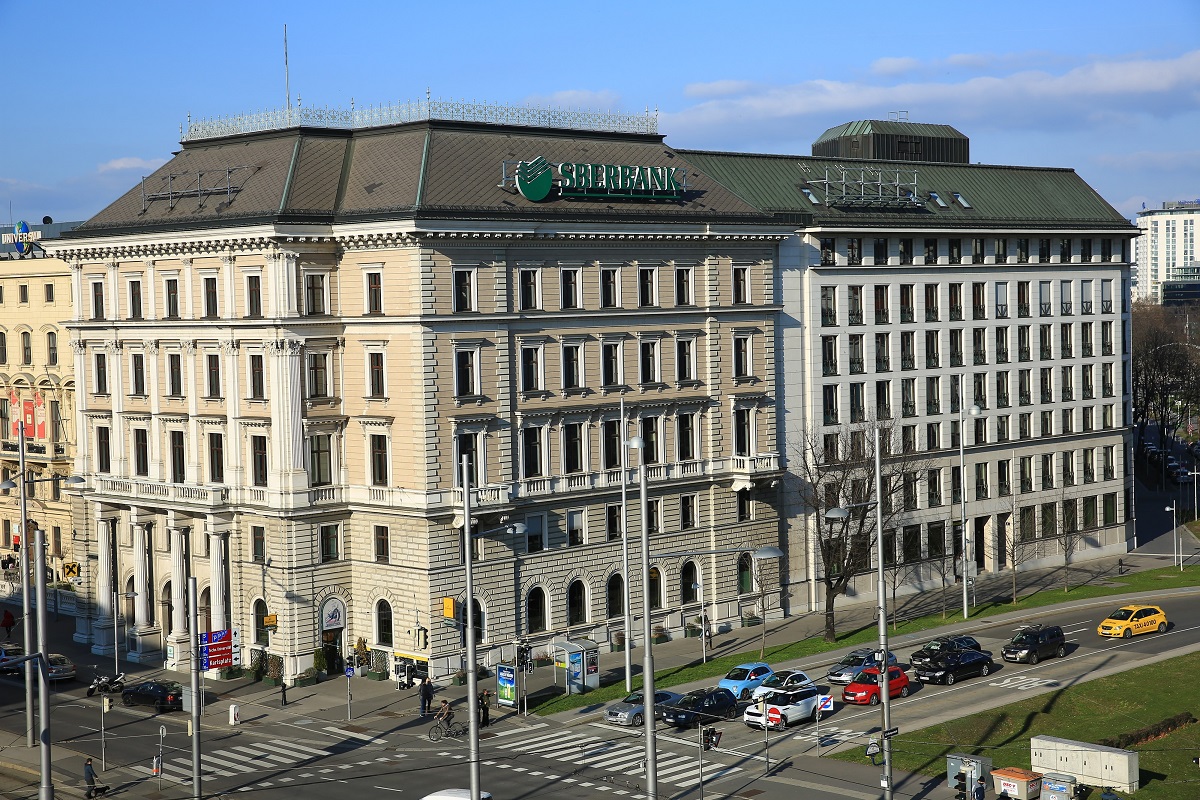Edinburgh University has been criticised for holding shares in a Russian bank currently under sanctions from both the United States and the European Union.
Sberbank of Russia has been under sanctions since 2014. In December 2015, Edinburgh University invested £636,638 in Sberbank shares and still has these holdings.
Sanctions were imposed on Sberbank following Russia’s annexation of Crimea and its involvement in Ukraine’s civil war.
Sberbank is the largest commercial bank in Russia. Its majority shareholder is Russia’s Central Bank.
Edinburgh University’s investment in Sberbank does not break the terms of the sanctions – which only relates to capital raised after 2014 – but transparency advocates and student representatives have called on the university to consider carefully the ethics of the investment.
Edinburgh has a policy of “responsible investment” which commits the university to investments that make a “significant, sustainable and socially responsible contribution to Scotland, the UK and the world, promoting health, economic growth and cultural wellbeing.”
“Prestigious UK institutions – like the University of Edinburgh – should be aware of the broader consequences of doing business with companies and individuals which represent a high money laundering and corruption risk,” Duncan Hames, Director of Policy Transparency International UK told The Ferret.
“Associating with reputable UK institutions is a key way in which corrupt regimes ‘launder’ their reputations, making them appear respectable. Universities in particular are a target for this type of activity and should conduct thorough due diligence on those with whom they have commercial or philanthropic relationships.”
NUS Scotland President Luke Humberstone said: “It’s vital that all financial dealings in our universities are treated with the high ethical standards we expect in every area of their work. Every universities needs to look at where its money is going, what they’re funding, and ensure that any available resource is used to achieve the educational objectives of the institution.”
Jenny Carr, chair of the Scotland-Russia Forum, said it was “surprising that Edinburgh University would have any dealings with Sberbank, given that Sberbank itself is under sanctions. I don’t know why Edinburgh University would be have investments in an organisation that is under sanction even if the university’s specific investments are not covered by the sanctions.”
Edinburgh University has total investment assets of almost half a billion pounds, with more than £250m held in equities like the Sberbank investment. These shares are managed by Edinburgh-based assessment management firm Bailie Gifford.
A University of Edinburgh spokesperson said: “The holding in Sberbank has been in the University’s portfolio for several years and is not in breach of UK law or regulation. Our advisers monitor our portfolio regularly to ensure compliance with anti-financial crime and sanctions matters.”
Sberbank is the largest bank in Russia and Eastern Europe, with an estimated customer base of around 115 million customers.
In September, Sberbank announced plans to withdraw from several countries in Europe under pressure from sanctions. The bank’s chief executive Herman Gref told Russian state television that the sanctions had made Sberbank’s life in Europe “extremely difficult“.
Sberbank is barred from raising debt of more than 30 days’ maturity in Europe under the sanctions, passed in 2014 in response to Moscow’s role in the Ukraine crisis. This means the banks are restricted in their ability to raise financing.
Russia had hoped that president Trump would reverse the sanctions but the US actually tightened its limit from 30 to 14 days this year in response to Moscow’s alleged meddling in last year’s presidential election.
Questions about Russian influence in British politics have been raised recently. Last week, prime minister Theresa May accused Moscow of meddling in elections and conducting covert cyber-spying against the west. The Electoral Commission is also investigating claims that “dark money” could have been used to finance the Brexit campaign.
Over the weekend newspapers reported that funding Edinburgh University accepted from the Russian state-backed Russkiy Mir Foundation (RMF) came with a number of non-negotiable commitments.
The RMF gave Edinburgh University some £240,000 for the Princess Dashkova centre on condition that camera footage of the interior was provided and inspectors were allowed “unobstructed” access to the premises. The centre opened in 2010.
Ahead of the 2014 Scottish independence referendum, Russian state media reported that UK leader David Cameron had asked Russian president Vladimir Putin for his help to secure a ‘no’ vote. Angus King, a US senator, recently warned that Russia was actively pursuing a disinformation campaign to spark a second independence referendum in Scotland.














